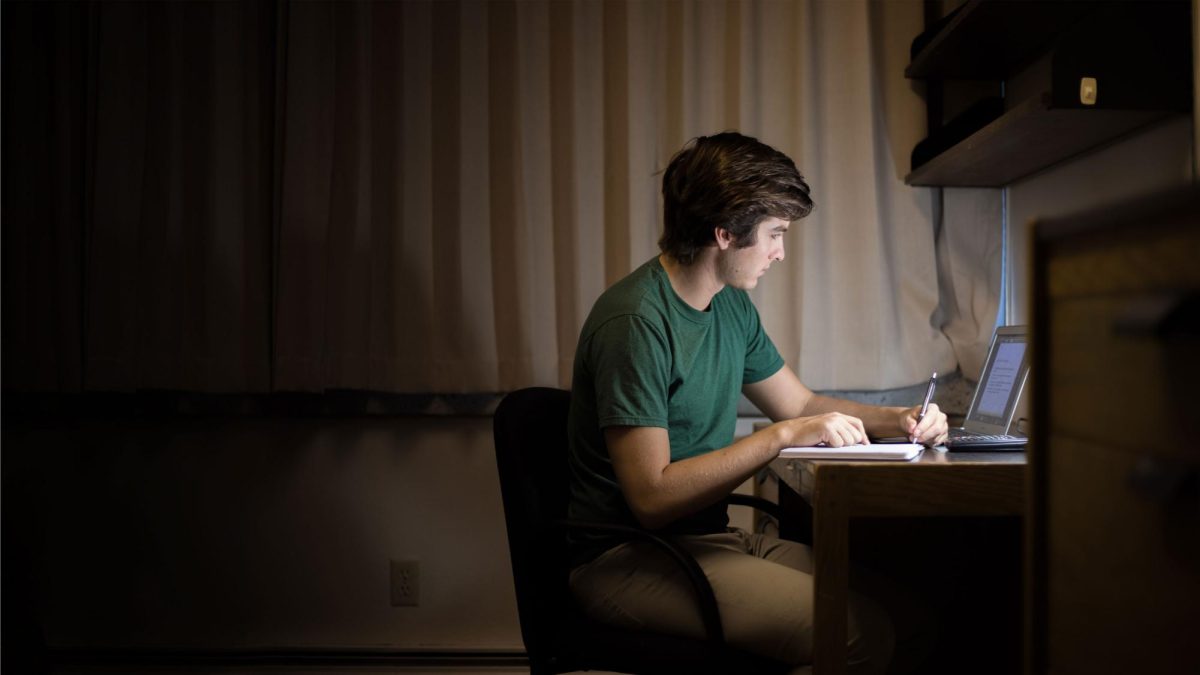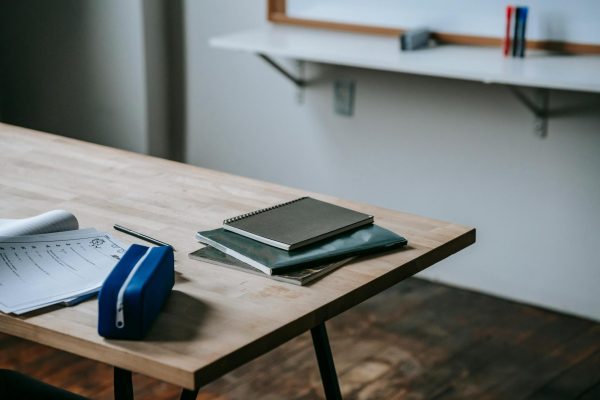The Proper All-Nighter Etiquette
We’ve all been there. Life gets too busy, deadlines keep piling up, there’s no time to do anything and suddenly the stakes are high because—it’s finals week. At this point you’ve probably accepted that you will be pulling the ancient ritual of students worldwide- the all nighter. It’s nothing to be ashamed of, we’ve all been there (and I guarantee that we’ll all be there a few more times before we graduate the education system). It’s an inevitability, so why not learn how to do it properly?
Before getting into it, there’s one thing to keep in mind: despite how much you cram the night before, realize that you won’t perform outstandingly well on your exam if you don’t sleep at all. From experience, staying up until 1 am trying to work out AP Chem did nothing to help me in my final hour. Yes, it was a true all-nighter—which are ones to always be avoided at all costs—and not staying up may seem like defeating the purpose of an ‘all-nighter’ but sleep is an integral part of making sure all your work in pulling that all-nighter leads to satisfactory results.
So, before jumping in, evaluate whether you really need to stay up all night, or whether it is better to turn in early and be well rested. There are several different ways to tackle an all nighter and for every student, it’s always a unique situation. Keep that in mind as you debate on whether or not you should stay up all night.
A disclaimer to add – depriving yourself of sleep can be very dangerous. If you stay up for longer than 72 hours psychosis and other psychotic side effects can occur, I can attest to this. Your brain actually processes information absorbed into memories at night, so it is likely you will perform better after a good night’s sleep. If the all nighter is unavoidable, be sure to pay back your sleep debt the next day.
Step 1: Have a Plan & Come Prepared
Accept your fate early. I can’t stress this enough, but face the fact that you have to pull the all nighter maybe before dinner and not at midnight when you’ve had no time to prepare. Most people think they can budget enough time to finish studying or a project and end up awake in the wee hours of the morning, almost four hours over their projected finish time. Accepting your fate early means that you can fit a nap into your afternoon. Yes, I said nap.
No, not in the middle of your all nighter. But if it looks like you may have to pull an all-nighter, it will be beneficial if you can get 1-2 hours of sleep sometime during the day before. It is recommended that you nap for 90 minutes as this is one REM cycle (the good kind of restorative sleep) without going into a deep sleep cycle which will leave you dazed when you wake up.You will want to make sure to wake up before 9 p.m., or risk your body trying to put you to sleep for the rest of the night!
What works best for me is the caffeine nap. Tried and true, the Caffeine Nap has truly stood the test of time, helping me in my time of need at least seven times—oh, those econ problem sets. So, the Caffeine Nap: Drink a cup of coffee and then immediately take your nap. The caffeine should work it’s magic after 10- 20 minutes, waking you up. This short power nap should be enough to boost your energy and the coffee will stop you from feeling drowsy or lethargic when you wake. Now, another disclaimer, if you don’t normally drink coffee or you don’t know what coffee does to you, a regular nap can suffice. Otherwise, drinking coffee can be detrimental to planning out your time and we don’t want that.
Before going under in your nap, make a study plan. Doing this ensures that you will be efficient with your time, allowing you to possibly finish earlier than expected and manage to squeeze in some shut eye. Know what you need to study and how you are going to study for it. Set a goal for yourself, a few good studying goals include:
- Copying all important points from notes into a study guide / cram guide.
- Re-reading one or several chapters of your textbook and taking notes as needed.
- Creating a complete set of flash cards and going through the set a certain number of times.
If you have a project due, gather everything you need and don’t stop until it is done. Make sure you have all of the study material and snackage that you need to keep you going all night long.
If you have multiple assignments due, sort the work that you have to do into a pile with the easiest work at the bottom and the hardest at the top. You’ll get to the most difficult work whilst you still have brain power and are feeling more awake.
Step 2: Set An Alarm (Multiple Alarms)
Not everyone can make it through every all nighter, and inevitably you will fall asleep during at least one of your midnight study attempts. I have fallen asleep in an odd number of positions because of this. It really happens to everyone. There is no shame in this.However, there is shame in accidently sleeping through your final exam, or your big presentation. Set an alarm for about 30 minutes before you actually need to wake up. This gives you a little extra time to get your sleepy head going in the morning if you DO fall asleep, and allows you to get to a stopping point before you start your day if you have managed to make it through the night and are still going.
Step 3: Hydration, Hydration, Hydration!
If you stay properly hydrated it will be MUCH easier to stay awake. Not to mention it will be much easier on your body the next day. Aim to drink two 8oz glasses of water (or one standard 16oz bottle) every hour or two. It will keep you awake and alert, and help your body deal with lack of sleep stress.
Step 4: Fueling Up & Snacking Smart
You know what they say: eat like a king in the morning, a queen at lunch, and a peasant at supper. Lay off a heavy meal before your all nighter! It’ll make you sleepy and that completely defeats the purpose of your all nighter. Try a light healthy dinner like stir fry.
If you’re feeling peckish, eat small portions of snacks while you work. Make sure your snacks aren’t pure sugar or all junk, you’re looking for natural sugars and protein like pizza, cheese and crackers, fresh or dried fruit and sandwiches.
Once it gets past 11pm, caffeine is no longer your friend. Chugging a coffee will only lead to you feeling antsy and anxious. It will also become less and less effective the later (or earlier) it gets. Instead, drink at least one cold glass of water every 30 minutes. As per Step 3, this will keep your brain hydrated and you awake! As the hours drag on to early morning and the drowsiness really kicks in, your best energy booster is actually going to be chocolate milk. It contains both sugar and caffeine, so like Hannah Montanna, it’s the best of both worlds.
Step 5: Set the Mood (NO SOFT MUSIC)
Your study environment can have a big impact on how effective you’re really being. I know it may seem tempting, but under no circumstances should you study on your bed. Your brain associates that pillowy goodness with sleep, so within a few minutes of laying down you’ll probably doze off. In fact, if you work in any other place than a cold hard table and chair, you will probably feel very tempted to sleep. Keep yourself slightly uncomfortable for the greater good.
Another simple tip is that lighting plays a key role in telling us to wake up or go to sleep. Keep your study room brightly lit to avoid any dim-lighting drowsiness. A good desk lamp or two can make a world of difference in your attention span! If you find your eyelids getting heavy, stare at a dim spot in your room and slowly move your eyes toward the lights. This lighting motion will help simulate a sunrise and wake you up!
Also, if you find yourself feeling cold, resist the temptation to put your heater on. Instead, throw on a jumper. If you are too warm and cozy, sleep will definitely seem like a good option (which if you’re pulling an all nighter, its not).
A change of scenery can also help to refresh your brain. Even if you can’t be bothered moving from your room, getting up and doing a few stretches for 10 minutes can help. Make sure that for every 55 minutes of work, you’re taking a 5 minute break. However, this is not the same is procrastination! Your breaks should be short and timed so that you get back to working without getting distracted. External stimulus can also help in keeping your brain firing. Whether this be an open window, music (preferably instrumental), or a like minded friend- a changing environment can prevent you from going into a stupor.
There’s one thing about changing environments: distractions are prevalent, everywhere. Don’t Allow Distractions!! Turn OFF your phone (and no, that doesn’t mean vibrate or silent.) and unless about absolutely need it, turn off your Internet connection. Music is definitely okay to have in the background – some people study better to it – as long as it doesn’t distract you.
Step 6: No Procrastination, Just Get Started!
One of the hardest things is kicking off your all nighter. While the all nighter is most often a state in which students accidentally slip into on part of poor planning, many fail to realize the value behind planning it all out. Maximize your profits and minimize the costs – plan, plan, plan ! But don’t forget to execute! Jump in and begin. You have your plan, your snacks, and you know what you must do. In the words of Yoda. Do, or do not. There is no try.
The Morning After
If you’ve been up all night, you may as well go and watch your reward- the sun rise. A great pre-exam/ test/ assignment plan is to exercise or just get moving, have a shower and eat a high-protein, low-fat breakfast like omelettes. Avoiding fat in your breakfast is important because it takes longer to digest and can make you feel sluggish. Unless it is within half an hour of your alarm going off, go to bed! You may be too wired or anxious to fall asleep, but even 30 minutes of rest will benefit your body and mind. Make sure to set an alarm for half an hour before you need to be awake for your exam test or class. That way if you accidentally doze off you’ll still be up and ready to use in the fruits of your labor.
An all nighter is a useful tool for students, however please make sure that it is kept as a last resort. If you do decide to pull one, have a one or two hour nap that day but don’t go to bed until that night. Otherwise, you’ll risk messing up your sleeping patterns and find yourself struggling to sleep for the rest of the week. Also just remember, things may be busy and overwhelming right now- but you can get through this. Give yourself a break when you need it but do your best to stay on top of everything- it’ll make things easier in the long run.






